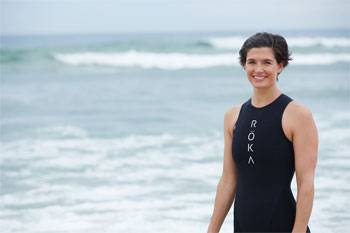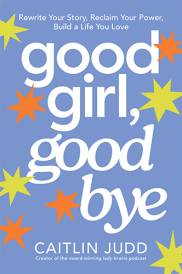Pip Taylor Half Marathon Food Fueling Interview

Pip Taylor Half Marathon Food Fueling Interview
Dietitian, sports nutritionist and Saucony Australia ambassador, Pip Taylor, shares her insider tips and secrets to reach your full potential when running long distances, such as half- or full-marathons.
Interview with Pip Taylor, Sports Nutritionist
Question: Did you participate in the Sydney Morning Herald Half Marathon?
Pip Taylor: Unfortunately, I was unable to make it to Sydney to run in the SMH Half Marathon with the Saucony Running Team! A great team did go along to race though, including Ali Cavill, Monique Craft, Ben Seymour and Belinda Norton-Smith.
Question: What are the most common reasons runners don't achieve their PB during an event such as the SMH Half Marathon?
Pip Taylor: The most common reasons runners don't reach peak performance are due to lack of nutrition or the onset of nerves before or during a race. There are a number of reasons why you may sometimes have a lack of performance:
Lack of training – As you train your muscles and lungs to get you through the big race, you must also train your digestive system. Training the digestive system teaches it to cope with foods and fluids both before and during the race. It is not a natural thing to be eating or drinking while on the run, but your stomach, like other muscles, is very adaptive and the more you practice the easier it becomes.
Over or under watered – If you don't hydrate correctly before your run you are increasing your chances for dehydration. This is generally due to not drinking enough water to replenish water emitted through breathing and sweating – dehydration can compromise your performance in a big race. People generally think that guzzling down fluids is the answer, however too much water can be just as problematic.
Leaky gut – Good gut health is imperative to being able to withstand the physical and mental stress of race day. A healthy gut is the result of daily intake of foods – and is as much about what you do eat (lots of fibre, fruits and veg and unprocessed foods, as well as probiotic containing foods) as what you don't eat (high sugar, highly refined carbohydrates).
Too many butterflies – Some nerves can be good before a big race, but being overly anxious can be crippling for performance. There is a strong connection between the brain and the gut, and being overly anxious increases risk of gastrointestinal distress.
Question: What should we be consuming prior to a half marathon?
Pip Taylor: I am an advocate of keeping things simple and sticking to usual eating patterns and foods, as much as possible. Your gut gets used to what you usually eat, and if you have trained up to an event eating certain foods, then it makes sense to stick with that. The day before and morning of are the only meals where you might consider making some adjustments. Because it takes energy to digest foods, and you are likely using a lot of extra energy mentally preparing for the race, you can make things a little easier on your digestive system.
Rather than heavy meats that take longer to digest, include proteins such as fish or even minced steak, which are more easily digested and choose cooked vegetables rather than raw for the same reason. I would also recommend avoiding overly salty or high sugar foods - which may alter thirst sensations and water retention. Very spicy foods can also irritate your gut (if you're not accustomed to them) and lead to stomach upset, as can known or suspected food intolerances.
Question: And, what should we be eating after a run, for the best recovery?
Pip Taylor: Something with some quality carbs and protein as well as some fluids. I am a big believer in using whole real foods as much as possible. While sports drinks and gels might be convenient during/before a race, you should be able to plan on having something nutritious post-race. Ideally you would have something soon after the finish, but to be honest if you are not racing again in the next few days, then this timing becomes less important - although good recovery will of course help you feel better for other activities such as family, work etc. I would go for something like a smoothie or a fruit and nut bar, a peanut butter sandwich, chicken and rice or baked sweet potato, fruit and yogurt.
Question: Can you share with us a post-run smoothie recipe?
Pip Taylor: I am a big fan of putting greens in my smoothies to boost my vegetable intake. Generally, my post-run smoothie is something I make myself and depends on what I have available – either goods from my own garden or from the local farmers markets. It is usually a combo of spinach, kale, cucumber, mint, basil, avocado and lettuce, then I sweeten it with a banana and a handful of berries. For protein lately I have been using cricket protein! The one I use is simply whole crickets roasted and ground into a powder. It may sound different but these insects provide an amazing nutritional boost - all the essential amino acids, iron and Vitamin B12 as well as other essential nutrients. I might also add some yogurt or kefir for more protein and some gut healthy probiotics.
Question: What are the impacts long distance running can have on the body?
Pip Taylor: Running is a wholesome full-body workout. Going for a run gets the blood pumping, increases cardiovascular fitness, tones you up while also burning a hell of a lot of calories.
Long distance running can have extremely positive benefits on your body including improved mood and sleep patterns, while also strengthening your bones and muscles. Regular runners are proven to live three years longer than non-runners, while engaging in just a few minutes of running a day can decrease the risk of heart disease significantly.
While running is a great contributor to your fitness, health and well-being it can also have some detrimental effects and cause long-standing injuries both now and later in life. Around 40 per cent of running injuries start in the knees.
The motion of running causes irritation at the point where the kneecap rests on the thighbone. These injuries usually come as a result of lack of stretching or weak quads which are unable to support this alignment. Knee injuries can be avoided with strength training and consistent stretching after exercise, always in combination with a good shoe.
My first choice for running shoes is Saucony because their technology puts your foot in a more balanced and comfortable position, allowing for a more powerful and natural running stride. This can make a huge difference when running long distances, such as a half marathon. The human foot and ankle holds 26 bones, 33 joints and over 100 muscles, tendons and ligaments, so a good pair of shoes is crucial when running long distances.
Question: How can we decrease the impact on the body of long distance running with food?
Pip Taylor: Good food, and proper timing of nutrition, can both limit any damage from intense endurance activities as well as maximise training gains.
Healthy nutritional habits promote healthy functioning of all body systems – training can increase levels of inflammation, which is not necessarily a bad thing in the short team, but long term high levels of inflammation are associated with increased risk of disease and ill health.
Eating quality whole foods will help decrease levels of inflammation – keeping you healthy as well as reducing the risk of injury and/or shortening the time spent out due to injury.
We know that high intakes of vegetables and fruit are associated with good health and longevity. It makes sense too, that if we want to get the most from our athletic performances that we want our bodies to be as healthy as possible. This means it is important not to only fuel for energy, but provide yourself with adequate nutrients that are contributing to health.
Question: What five ingredients could you not live without?
Pip Taylor: Sweet potatoes! A staple in my house and one I never get tired of. I love either simply roasted with olive oil or coconut oil and cinnamon.
Yoghurt and kefir – I am a huge fan of dairy (including cheese!) but yoghurt and my homemade kefir are daily inclusions. Gut health is so important for overall health and these provide a good dose of probiotics.
Nuts – my favourites are macadamias, pecans and I love peanut butter as it is a nice compact form of protein and healthy fats.
Eggs – how can you beat eggs for nutrition and convenience? They are the ultimate fast food and go equally well at breakfast, lunch or dinner.
Interview by Brooke Hunter
MORE





